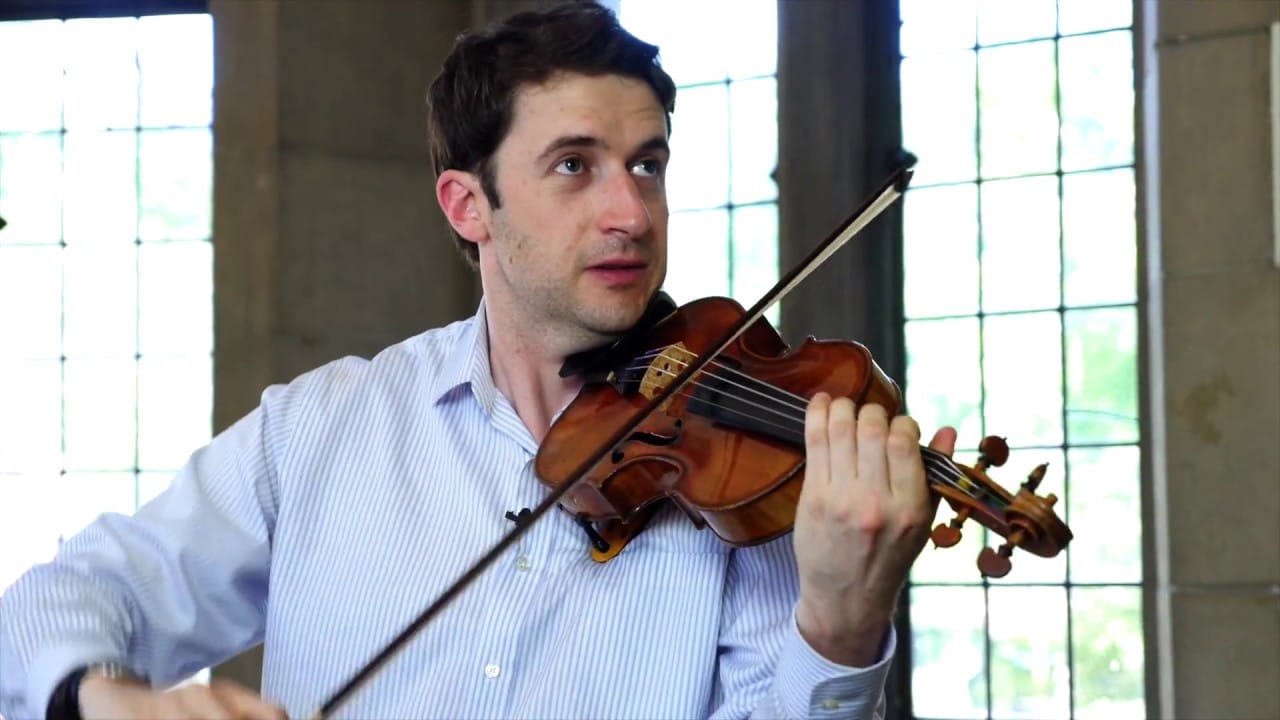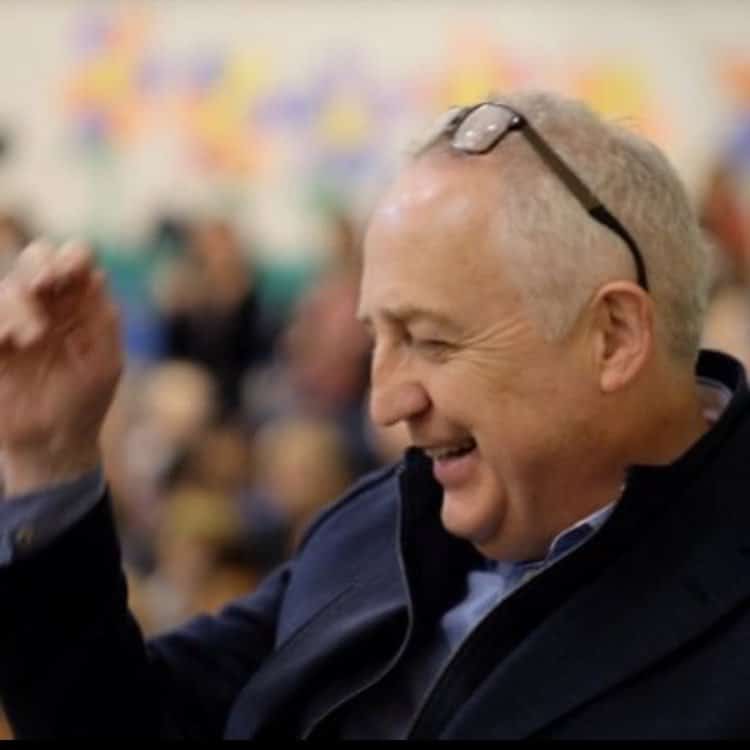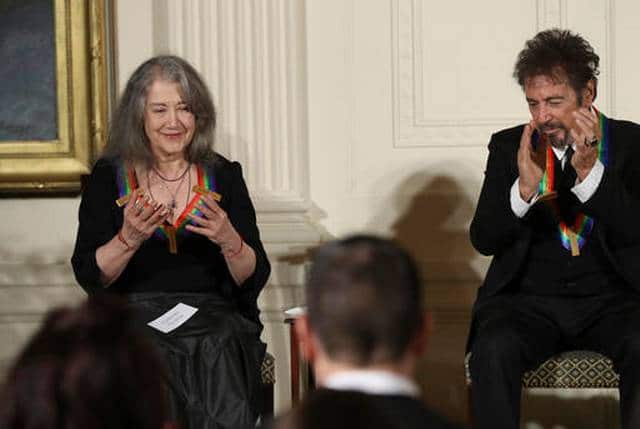What it was like to be a good American
mainA thanksgiving meditation from our weekly diarist Anthea Kreston, violinist of the Artemis Quartet.
In these times of political division, I often think of my grandmother-in-law, Madeline Duckles, who passed three years ago at the age of 97.
I first met Madeline Duckles in 2000 in LaJolla, California, after an Amelia Piano Trio concert for “rising stars”. We had recently spent six weeks in the glory of that Southern California town, perched above the ocean on cliffs, housed in a magnificent home of a patron of LaJolla Summerfest. The Amelia Piano Trio was less than a year old, but had a quick entrance into the chamber music scene, partially because Jason and I were also members of the Avalon String Quartet. The supercouple of David Finckel and Wu Han had taken the reigns of LaJolla the year before, and they proposed to us that not only the Quartet, but also the Trio would come be the young artists in residence at LaJolla Summerfest. We jumped at the chance, although this meant that I would be rehearsing four hours per day on viola, and four on violin, as well as having daily public master classes and many performances. In addition, Quartet was heavily preparing for the rigors of the ARD competition. But, how could we not do it? It was a pleasure to be invited back to perform on their winter series.
I had heard much about Madeline Duckles – she was a force to be reckoned with. The Matriarch of a Berkeley, California musical dynasty – her husband was the foremost musical bibliographer of his generation Vincent Duckles (at the time, the UCBerkeley library was named the Duckles Library), she was the mother of five strapping musical boys, and later fostered a young girl from Vietnam. Vin was an avid collector of rare manuscripts, and built the UCBerkeley Library into one of the greatest musical libraries of the world. To quote the UCBerkeley website, “Duckles built an atmosphere of friendship in the library that was entirely characteristic of the man himself. Those who worked there (as scholars, students, and staff) all experienced his concern for people as well as books, his patience and sheer good will. Affection is indeed a word that comes to mind when we think of Vin Duckles. He simply radiated goodness. No one can remember him ever uttering a sharp word. He and his wife Madeline were constantly involved in liberal and humanitarian causes; their circle of friends among librarians, book people, and musicologists on two continents was unusually wide and warm.”
As a young mother, Madeline traveled extensively throughout Europe, her five boys in tow, as Vincent combed through church basements and libraries for musical manuscripts. His tome “Musical Reference and Research Materials” was published – the first periodical to organize international writings on music. He was colleagues with other ground-breaking musicologist of the time, for example Otto Eric Deutsch (cataloguer of Schubert scores) and the inventor of RILM (International Repertoire of Musical Literature) – think of them as the “Indiana Jones” of classical music – investigating, traipsing around the globe, digging for information and bringing the findings back to the hallowed halls of their respective Universities for publication. The organization of the classical music world.
Madeline, a supportive wife who was famous for her large parties and always open door, was hardly a woman under the wings of her husband. She was raised on a ranch in the outback of California – in the times of horses and the Wild West – when girls had a tough life ahead of them and Native American presence was evident.
She attended UCBerkeley (where she met Vincent) and began to see the world from the outside, as a person increasingly involved in human rights, peace, and the non-proliferation of nuclear weapons. As she traveled throughout Europe, her involvement increased – an outspoken advocate for women’s rights, and political freedom. Her home in Berkeley had a revolving door of guests from the reaches of the world – in town for conferences, or work with the Friends Service Committee or the Women’s International League for Peace and Freedom. Madeline herself was on the front lines of protests – speaking, writing, meeting with people for negotiations. Her work with in the 60’s lead to the first Nuclear Non-Proliferation treaties, and she was the recipient many accolades.
During the Vietnam War, her involvement took a deeply personal bend, as she applied for and was accepted to foster a young girl who had been severely wounded in Vietnam. And so, the family of seven became a family of eight, during which time their new addition had medical attention and a series of operations.
Madeline became a widow in her 70’s, and her house continued to overflow with visitors of every stripe and nationality – some staying for one night, some for years. The doors were alway open (literally) and she held court in her redwood home perched on the Berkeley Hills – 51 steps down from the road on a slender, steep path.
When I met Madeline, after our concert in LaJolla, she apologized for arriving late – we had originally planned to grab a bite together before the show. She explained that, on the drive down from San Francisco, there was a demonstration at a nuclear site that she needed to go to. She ended up being arrested, and handcuffed standing up for four hours to a hurricane fence, all the while her nose was running and she was not allowed to have her cane (she was 84 at the time). Par for the course for Madeline, whose arrest record (both before and after I met her) had prompted her own file at the FBI (she was later to discover that even her friend’s dog, “Blackie” had a file – they thought it was a code name – telephone transcripts of “Blackie 10 AM veterinary visit, Blackie lost his ball, etc”.)
After this meeting, Madeline and Jason and I spent many glorious times together – in France, Italy, Washington D.C., California. She was a woman of dignity and grace – she never wore “slacks” and always made time for a 5:00 cocktail. She lived alone in her Berkeley home until just months before her passing, at the age of 97. Our oldest daughter played “Old Macdonald had a Farm” for her memorial service, and carries her name. Her nobility, strength of character, ability to influence the world for better – she continues to be an inspiration to us all.






Comments